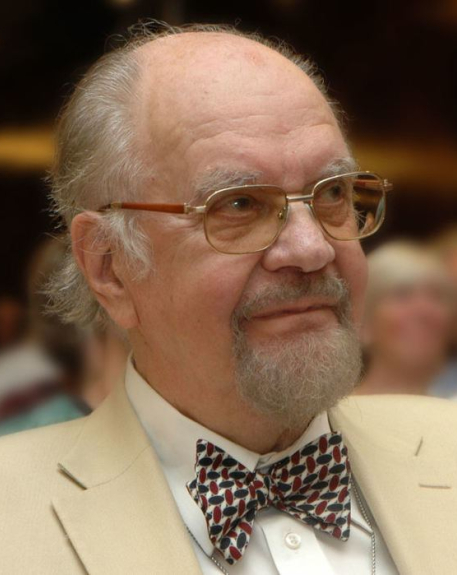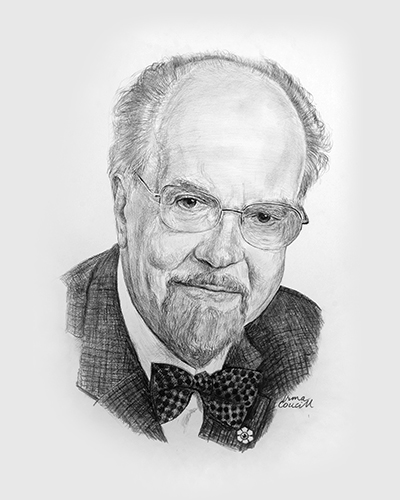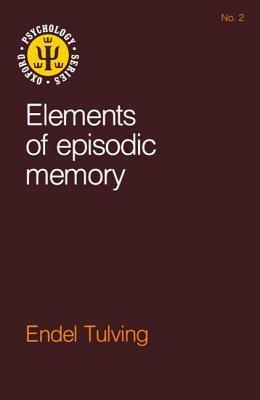2007 INDUCTEE Endel Tulving, PhD Brain & Mind
May 26, 1927
(Tartu, Estonia)
September 11, 2023
MA, University of Toronto (1954)
PhD, Harvard University (1957)
2006: Officer of the Order of Canada
2005: Honorary Doctor of Philosophy, Columbia University
See All AwardsAwards & Honours:
2006: Officer of the Order of Canada
2005: Honorary Doctor of Philosophy, Columbia University
2005: Gairdner Award
2003: Honorary Doctor of Philosophy, University of Haifa
2001: Honorary Doctor of Science, University of Toronto
1996: Honorary Doctor of Science, Queen’s University
1989: Honorary Doctor of Philosophy, University of Tartu, Estonia
1988: Honorary Doctor of Letters, Laurentian University
1987: Honorary Doctor of Letters, University of Waterloo
1994: Izaak Walton Killam Memorial Prize, Canada Council
1994: Gold Medal Award for Life Achievement in Psychological Science, American Psychological Foundation
1983: Award for Distinguished Contributions to Psychology as a Science, Canadian Psychological Association
1983: Award for Distinguished Scientific Contributions to Psychology, American Psychological Association
1982: Honorary Doctorate, University of Umea, Sweden
1979: Fellow of the Royal Society of Canada

Established the field of memory research in Canada

An innovative thinker and scientific leader in psychology
Tulving’s early work on “subjective organization” in free recall led him to the study of retrieval processes that had been largely neglected by previous generations of memory researchers. This work culminated in the “encoding specificity principle.” In 1972 he introduced, and later elaborated, the theory of “episodic memory.” This theory, now generally accepted, played an important role in the evolution of the concept of “multiple memory systems.” His work has not rested on theoretical shelves but has led to an increased understanding of neurological disorders such as stroke and Alzheimer’s disease. In recent years, with the advancement of technology, he studied the neural correlates of encoding and retrieval processes in different memory systems.
Key Facts
Ranked as the 36th most cited psychologist of the 20th century by the Review of General Psychology
Elected to six national academies of science worldwide
Demonstrated the central role of the frontal lobes for both episodic and semantic memory
Demonstrated that the right and left frontal lobes play different roles in encoding and retrieval
Member of numerous national and international psychology and neurology associations including the American Psychological Association and the Canadian Society for Brain, Behaviour and Cognitive Science
He is widely cited with over 300 research articles and chapters published, with an h-index of 124.
Professional timeline
Impact on lives today
A Canadian icon and major international figure in experimental psychology, Tulving’s theories provided the foundation for the whole field of memory research. By revealing multiple kinds of memory, Dr. Tulving caused a paradigm shift in memory research that remains widely accepted to this day. As a result, he opened the door to more specific research experiments that could better articulate the impact of neurological disorders. With these insights, the scientific and medical community continues to move closer to improvements in care and targeted treatment.

2007
-
Endel Tulving inducted into the Canadian Medical Hall of Fame
London, Ontario
-
Dr. Tulving was appointed the Tanenbaum Chair in Cognitive Neuroscience, Rotman Research Institute of Baycrest Centre
Brain & Mind, Leadership in Organizational DevelopmentThis post-retirement work began a second career as a neuroscientist. In 2007, at the age of 80, Dr. Tulving continued to publish ground-breaking work at the Institute.
-

Dr. Tulving published his book “Elements of Episodic Memory"
Brain & MindIn it, Tulving described five distinct memory systems.
-

After a brief period of five years as Professor at Yale University, Dr. Tulving returned to University of Toronto and became Chair of the Department of Psychology
Leadership in Organizational Development, Health and Medical Education & Training, Brain & MindHe remained at the University of Toronto until his retirement in 1992.
-
Dr. Tulving published a book chapter in which he argued that memory for specific events and memory for general knowledge were the manifestations of two distinct memory systems
Brain & MindHe described memory for autobiographical experiences as “episodic memory” whereas memory for facts was “semantic memory.” This perspective challenged most contemporary theories.
-
Dr. Tulving published an influential paper on retrieval processes
Brain & MindThis paper represented the first time someone had separated storage from retrieval and highlighted the mind’s active involvement in encoding information rather than as a response to stimuli.
-

Dr. Tulving joined the Psychology Department at the University of Toronto as an assistant professor
Health and Medical Education & Training, Brain & MindHe was promoted to full professor in 1965.
-
Dr. Tulving’s early work challenged the dominant belief that learning was based on simple associations
Brain & MindInstead, he focused on free recall studies and expanded research inquiry into memory encoding and memory retrieval processes.
-
At age 17, near the end of World War II, Tulving escaped his native Estonia before it was occupied by the Soviet Union
In 1949, he immigrated to Canada. After a short stint as a farmhand near London, Ontario, he enrolled in Honours Psychology at the University of Toronto. This marked the beginning of an incredibly productive career that spanned over half a century.
1949
He can state a simple new truth in a very powerful way.


